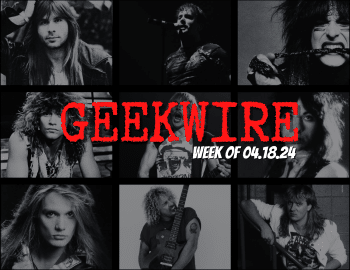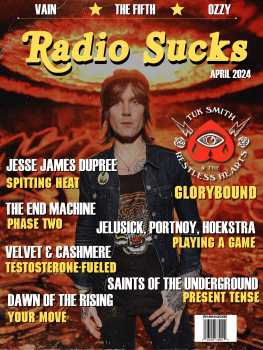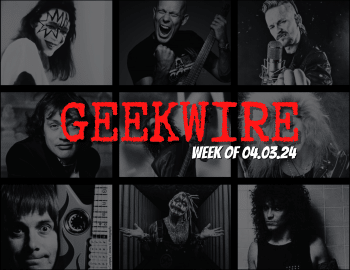First off, I have a great deal of respect for Paul Stanley and I have long been a huge admirer of his songwriting skills, he’s clearly very talented. KISS were my favorite band for all of my formative years and I was ecstatic when the original line-up reunited in 1996. I was lucky enough to see the band twice on the subsequent tour and I treasure those memories. Unfortunately ever since that triumphant Reunion Tour I have found myself repeatedly disappointed by decisions that have been made by Paul Stanley and Gene Simmons, from the disastrous Psycho Circus “reunion” album to the deceptively monikered and marketed “Farewell Tour” to the recasting of the “spaceman” and the “catman” as entities other than Ace Frehley and Peter Criss. The most recent and perhaps most unfortunate development in the KISS saga has been the completely unnecessary controversy surrounding the band’s long overdue induction into the Rock and Roll Hall of Fame. It seems rather obvious to me that the four original members of KISS should have performed together one last time at the ceremony and amicably and respectfully paid tribute to the band’s legacy and its devoted fans. It would have been a very special moment but it did not happen because Gene and Paul did not let it happen and a wonderful opportunity was squandered, and for what?
Let me begin by saying this: Paul Stanley’s book Face The Music: A Life Exposed is by far the best of the four KISS memoirs. Of course if you’ve read the other three books you know that that isn’t saying much. Gene’s book was a self-congratulatory love letter to himself, Ace’s was predictably scant on details, and Peter’s I suspect was mostly a work of fiction. Paul’s book is the best of the four almost by default. Let me put it this way: unlike the other three, Paul’s book is actually good. Paul Stanley has always struck me as the most down to earth and level-headed of the four and in a brilliant move he waited until the other three guys had each written a book before writing his own, thus Paul Stanley gets the last word and he takes full advantage of that position, slamming all three of his original bandmates mercilessly.
In the opening chapters of the book Paul describes a very difficult childhood, thanks in no small part to the deformed ear and partial deafness with which he was born. Clearly he struggled. He also laments his upbringing, lambasting his parents for the lack of affection they showed to each other and to Paul and his mentally unstable sister (who apparently attempted to kill young Paul with a hammer). Paul does not hesitate to blame many of his later problems forming relationships on the relationship that he had with his parents. This is understandable, but considering how aware Paul is of his own issues and what may or may not have caused them (he devotes a great deal of the book to describing how his feelings about his deformed ear and the way that others reacted to it damaged him emotionally and inhibited him in his social interactions) one might think he’d be more sympathetic when it comes to the personal issues of others. He is careful to trace many of his own problems back to how he was treated by his parents and his deformity and its ramifications, but when it comes to other people (those same parents, Ace Frehley, Peter Criss, Eric Carr) he never even seems to consider the possibility that these other people maybe had some negative experiences in their own lives that might help explain some of the behaviors that Paul so resented and for which Paul did not hesitate to judge them harshly. His superior tone throughout makes it clear that he made little or no effort to relate to or empathize with these others. It’s all judgement and dismissal.
I urge any KISS fan who reads Paul Stanley’s book to undertake this exercise: when you get to the part where Paul describes Ace Frehley circa 1977-1978 stop reading the book, put Ace Frehley’s 1978 solo album on the stereo, and then pick the book back up and read Paul’s description of Ace while listening to the record that Ace made in 1978 and you tell me, could the guy that Paul describes possibly have made that masterpiece of an album? The answer, of course, is no. The Ace Frehley solo album is so clearly an example of an artist at the top of his game as opposed to the bottom of a bottle. Think about this: as of 1978 Ace Frehley and Peter Criss had taken part in a juggernaut of a career that had produced six studio albums and two live albums in four short years, not to mention an almost non-stop touring schedule, hundreds and hundreds of concerts. Yet according to Paul by 1977 Ace and Peter were utterly inept living disasters. Here’s what I think: Paul Stanley is GREATLY exaggerating Ace and Peter’s ineptitude. Why? I don’t know: bitterness, resentment, a desire to undermine their credibility, an effort to downplay the importance of the roles they played in the success of the band…you tell me.
Here’s something else to ponder: Paul Stanley tries very hard early on in his book to convey just how important the formation of this band was to him and to his future. He is very careful to point out that the band that he was forming in 1973 was everything to him, he had no plan B, the band simply had to work, absolutely everything was riding on it. So think about it: with everything on the line Gene and Paul chose Peter Criss and Ace Frehley. Why did they choose Peter Criss and Ace Frehley? Clearly they had many drummers and guitar players to choose from. Why Ace and Peter? Obviously because they liked them and thought they were talented. Gene and Paul selected Peter and Ace as the drummer and guitar player that they felt they needed in order to make their band successful. Why else would they have chosen them? But now Paul would have us believe that KISS succeeded in spite of Ace and Peter. Bullshit.
At least Paul admits in the book that Carnival of Souls and Psycho Circus were misguided disasters but he places most of the blame on Gene for the former and Bruce Fairbairn for the latter. He criticizes Ace and Peter for not accepting responsibility for their mistakes but when it comes to weakly imitating grunge or completely dropping the ball on the reunion album Paul refuses to take responsibility for his own mistakes. At one point Paul complains that during the making of Psycho Circus the only way that he heard from Peter or Ace was through a lawyer. So now I finally understand why Ace and Peter were not involved in the making of the so-called reunion album. It’s pretty simple: Gene and Paul ripped them off big time on the Reunion Tour, apparently making at least ten times as much as Ace and Peter, so Ace and Peter decided to renegotiate and use the making of the album as leverage, and who can blame them? But rather than treat Ace and Peter fairly Gene and Paul
decided to make the album without them and then, showing an utter lack of respect for the fans, promoted it as a reunion album.
So yes, I accuse Gene and Paul of ripping off Ace and Peter on the Reunion Tour. Gene and Paul exploited unfair leverage they possessed and kept the bulk of the profits for themselves, even though Ace and Peter were equally important and equally deserving, in my opinion, of reaping the rewards. I say Gene and Paul ripped them off. What might Paul’s retort be? To call me an anti-semite, perhaps? Paul accuses both Ace and Peter of anti-semitism but doesn’t offer a shred of evidence beyond an anecdote about Ace buying Nazi memorabilia while the band was on tour. Paul is being extremely disingenuous at this point in the book since any Kiss fan who owns Lydia Criss’ book has seen the pictures of Paul wearing that same Nazi memorabilia.
 |
| That’s Paul on the right. |
Yes, Paul dressed up like a Nazi with Ace and Peter and posed for pictures, then 40 years later used that same memorabilia as evidence of Ace’s anti-semitism. That is very underhanded. It’s outrageous. FYI: Ace Frehley is currently engaged, and she’s Jewish.
The way Paul tells it Ace and Peter were essentially impossible to work with by the end of the Reunion Tour and the fact that the band was even able to perform on any given night was an absolute miracle and simply a testament to Gene and Paul’s own fortitude and dedication in the face of such adversity, thus it’s perfectly understandable that Gene and Paul chose to do TWO MORE WORLD TOURS with Ace and Peter. If Paul is to be believed then Gene and himself are guilty of defrauding fans, launching tours they knew would be substandard just for the payday, but here’s the thing: I think it’s quite apparent that Paul Stanley is exaggerating. Big time. I attended the Reunion Tour twice and the Farewell Tour once and I didn’t notice any problems. Anyone reading this who attended any show on any of the three tours the reunited line-up put on, please tell us in the comments below, did Ace and Peter perform well at the shows that you attended or not? If Paul is to be believed there should be a slew of complaints below from fans who witnessed concerts ruined by Ace’s and Peter’s unprofessional behavior. Paul Stanley spends much of the book repeating himself, whether it’s about Peter’s outrageous demands at hotels (supposedly he insisted upon the windows being covered with aluminum foil–that was Elvis, Paul) or Ace Frehley’s constant state of intoxication (there are plenty of clips on Youtube from this time, interviews and performances, of a perfectly together Ace) but if one takes an objective look back at all that KISS accomplished when Ace and Peter were a part of the band it seems rather obvious that Paul Stanley is exaggerating, his motive being twofold: 1) to discredit Ace and Peter and play down the importance of the role each played in the success of KISS (both times) and 2) to buffer the current line-up of KISS against snipes at its own credibility.
The early chapters of Paul Stanley’s book, about his formative years, are great, very enlightening and emotionally effective. He also romanticizes the early years of KISS quite well and really seems to have enjoyed being in the band circa 1973-1976. It appears to have all started to go wrong with Destroyer and I think I know why: Ace and Peter hated working with the taskmaster Bob Ezrin and honestly, I don’t blame them. In my opinion Ezrin set out to force KISS to make a non-KISS album. If I were Ace or Peter I would have bailed on Ezrin’s album as well and it’s no wonder that KISS returned to Eddie Kramer and the band’s classic sound for the next album, Rock and Roll Over. Ace and Peter perform well on Rock and Roll Over but Paul just can’t give them credit, he instead describes how Peter could not carry a tune and had to be coached line by line how to sing “Hard Luck Woman.” But isn’t it strange that Peter did just fine singing Paul’s song “Black Diamond,” an undeniable KISS classic, on the first KISS album? Why did Paul let him sing it if he was so terrible, and how did it turn out so good? To me it seems rather obvious that what changed between 1974 and 1977 was Paul’s perception, not Peter’s ability.
I do not deny that Peter and Ace were obviously difficult to work with at times, I would simply assert once again that Paul is exaggerating greatly in his descriptions of the two, and he has a clear motive to do so. Paul implies that Gene and himself deserved to make at least ten times more than Ace and Peter from the hugely successful Reunion Tour because himself and Gene kept the band alive through the eighties, but ironically Paul spends a great deal of the book complaining about how Gene deserted him in the eighties and left him to do all the work. Thus by Paul’s logic the only member of KISS that deserved a big pay day come reunion time was Paul Stanley, but here’s the thing: I believe that the Reunion Tour would have been just as big if KISS had split up in 1980. I believe that MANY of the people that bought tickets for the Reunion Tour bought them IN SPITE of the eighties, they were not really fans of KISS in the eighties and did not go see KISS live in the eighties, but they came back in droves for the Reunion Tour. Paul Stanley discusses every album and tour in his book but he skips over the 1992 Revenge Tour, why? Because KISS played to empty arenas on the Revenge Tour. The Reunion Tour was a success because it was those four guys back in the make-up, not because Paul kept the band alive with “Let’s Put The X In Sex.”
The timing of Paul Stanley’s book was impeccable, it came out the same week that KISS were inducted into the Rock and Roll Hall of Fame, and in that context the fact that Paul spends so much of the book denigrating Ace Frehley and Peter Criss is disappointing but not surprising. As I
said early on, Paul is very honest about his own personal issues and what he thinks caused them, but he never bothers to wonder what might have caused the issues he saw in Ace and Peter. That’s called empathy, and Paul lacks it, at least when it comes to Ace and Peter. Instead of empathy he judges them quite harshly and congratulates himself for not making the same mistakes. He just made different mistakes. I definitely recommend this book to any KISS fan but as you read please be sure to reflect upon all that KISS accomplished in the seventies and the three world tours they pulled off between 1996 and 2000. Think about all of the hard work and dedication that went into it, and not just from Gene and Paul. Ace Frehley and Peter Criss also rolled the dice on a dream. Ace Frehley and Peter Criss contributed a great deal to the band, including a staggering amount of time and effort. Paul Stanley’s assessment of Ace and Peter is ridiculously one-sided and unfair and completely lacking in empathy. They deserve far more credit than Paul Stanley seemingly would allow, and they deserved to play together with Gene and Paul one last time at the Rock and Roll Hall of Fame. Gene and Paul made a big mistake that night and I suspect they already know it, but it’s too late.
 |
| The good old days |





